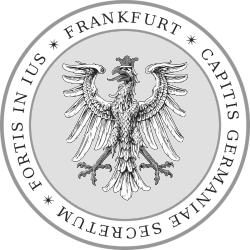Hat Facebook 500 Mio. Nutzer?
Dienstag, 1. Februar 2011
Eine Übersetzung für diesen Text ist nicht verfügbar. Bitte wählen Sie die englische Version.
We don't think so. Jason Slater published an article on his website jasonslater.co.uk in 2010
basically telling that, according to Facebook itself, roughly 200 million users log on to their accounts in any
given day.
Further he suspected that a number of people have unused accounts registered with Facebook. In pursuance of Mr. Slater's article some others may also have multiple accounts for various different reasons like keeping interests separated from each other or acting within different groups. As a closing quote Mr. Slater said: "I guess it depends on whether you consider a member as being an account that exists on the system or a unique individual?" and finally: "Presently, it is far too easy to create an account as all that is really needed is a valid email address [..]" [1]. We think these estimations are correct in general and allegorize an inherent problem to all websites on the internet; especially social community portals (SCP) which allow users to register themselves easily with the system.
Further he suspected that a number of people have unused accounts registered with Facebook. In pursuance of Mr. Slater's article some others may also have multiple accounts for various different reasons like keeping interests separated from each other or acting within different groups. As a closing quote Mr. Slater said: "I guess it depends on whether you consider a member as being an account that exists on the system or a unique individual?" and finally: "Presently, it is far too easy to create an account as all that is really needed is a valid email address [..]" [1]. We think these estimations are correct in general and allegorize an inherent problem to all websites on the internet; especially social community portals (SCP) which allow users to register themselves easily with the system.
Those portals are built upon an active user base and thus heavily depend on it. That user base is the reason for
the majority of revenues and later investments of companies behind them. Goldman Sachs for example spent much on
Facebook with its $450 million investment. Reuters Group Ltd. a global news agency went public in early 2011
with some numbers regarding Facebook. Therefore the company earned $355 million in net income in the first nine
months of 2010 (Facebook generated $1.2 billion in revenue during the same period of time), according to documents
distributed by Goldman Sachs. Expanding this nine-month period to a year yields $1.6 billion in revenue and under
half a billion in income. Interestingly that was just a fraction of the online social network's $50 billion
valuation
[2].
Nevertheless investors were increasingly eager to buy shares of Facebook and other fast-growing Internet social
networking companies on private exchanges.
Although given these raw numbers and the relatively moderate reduction in active users from 500 to 200 million we were thinking the Facebook hype would come to an end soon. An article on CNN named "Facebook hype will fade" by Douglas Rushkoff has made such a statement [3]. Mr. Rushkoff said: "[..] we are witnessing the beginning of the end of Facebook." and that the company would actually cash out. He further compared Facebooks performance with AOL's in 2000 when the company came up with a $350 million merger with Time Warner, which finally turned out to be catastrophic since users ventured out onto the Web directly, not using the companies services. Mr. Rushkoff also said that Goldman could not loose, neither by its direct investment/earnings for selling that other $1.5 billion of private Facebook shares, nor by ultimately making bets against Facebook [4]. He finally stated correctly, that it's the people that matter and not the venue, because the longer Facebook could maintain (an illusion of) great profits without alienating its users, the longer the company could delay its decline.
A thing not yet pointed at is the technology behind Facebook. The companies past endeavors are insofar relevant as they had the potential to delay Facebook's decline by attracting new users. For instance Facebook introduced an alternative way to verify its users rather than using well-known CAPTCHAS [5]. The new login scheme called "Social Authentication"; does authenticate users by showing them pictures of "friends" registered with Facebook and then asks to name the person shown in a specific one. Furthermore Facebook launched HTTPS in the context of "HTTPS Everywhere", a project initiated in 2010 by the EFF (Electronic Frontier Foundation) and meanwhile anticipated among website operators, to secure HTTP connections using TLS, especially those of online search, communication or payment services [6]. Taking that development into account it may give Facebook some more time even when considering some weaknesses within TLS (Transport Layer Security) itself. However we at TRON-DELTA.ORG think TLS should be employed mandatorily in public places like shops, airports, libraries or schools. We also think that secure VPNs, which use cryptographic tunneling protocols to provide confidentiality, should be introduced widely.
To our own surprise some news turned up right before we intended to publish this article. Slashdot.org reported, that an unknown suspect broke into Mark Zuckerberg's Facebook account and posted a (bizarre) message calling upon the company to adopt a social cause. The message was something like "[..]Why not transform Facebook into a 'social business' the way Nobel Prize winner Muhammad Yunus described it?[..]" [7]. Don't get this wrong; the authors of this article are not economists, but a change in strategy may be a thing to consider, given the problems Facebook has to deal with.
Although given these raw numbers and the relatively moderate reduction in active users from 500 to 200 million we were thinking the Facebook hype would come to an end soon. An article on CNN named "Facebook hype will fade" by Douglas Rushkoff has made such a statement [3]. Mr. Rushkoff said: "[..] we are witnessing the beginning of the end of Facebook." and that the company would actually cash out. He further compared Facebooks performance with AOL's in 2000 when the company came up with a $350 million merger with Time Warner, which finally turned out to be catastrophic since users ventured out onto the Web directly, not using the companies services. Mr. Rushkoff also said that Goldman could not loose, neither by its direct investment/earnings for selling that other $1.5 billion of private Facebook shares, nor by ultimately making bets against Facebook [4]. He finally stated correctly, that it's the people that matter and not the venue, because the longer Facebook could maintain (an illusion of) great profits without alienating its users, the longer the company could delay its decline.
A thing not yet pointed at is the technology behind Facebook. The companies past endeavors are insofar relevant as they had the potential to delay Facebook's decline by attracting new users. For instance Facebook introduced an alternative way to verify its users rather than using well-known CAPTCHAS [5]. The new login scheme called "Social Authentication"; does authenticate users by showing them pictures of "friends" registered with Facebook and then asks to name the person shown in a specific one. Furthermore Facebook launched HTTPS in the context of "HTTPS Everywhere", a project initiated in 2010 by the EFF (Electronic Frontier Foundation) and meanwhile anticipated among website operators, to secure HTTP connections using TLS, especially those of online search, communication or payment services [6]. Taking that development into account it may give Facebook some more time even when considering some weaknesses within TLS (Transport Layer Security) itself. However we at TRON-DELTA.ORG think TLS should be employed mandatorily in public places like shops, airports, libraries or schools. We also think that secure VPNs, which use cryptographic tunneling protocols to provide confidentiality, should be introduced widely.
To our own surprise some news turned up right before we intended to publish this article. Slashdot.org reported, that an unknown suspect broke into Mark Zuckerberg's Facebook account and posted a (bizarre) message calling upon the company to adopt a social cause. The message was something like "[..]Why not transform Facebook into a 'social business' the way Nobel Prize winner Muhammad Yunus described it?[..]" [7]. Don't get this wrong; the authors of this article are not economists, but a change in strategy may be a thing to consider, given the problems Facebook has to deal with.
References:
- ↟ "Has Facebook Really Got 500 Million Members?" (404)↗. JasonSlater.com / J. Slater. Retrieved 01 March 2011.
- ↟ "Goldman Sachs Invests $450 Million In Facebook [..]"↗. Business Insider Inc. / D. Frommer. Retrieved 01 March 2011.
- ↟ "CNN: Facebook hype will fade"↗. RUSHKOFF. / Cable News Network. TBS, Inc. / D. Rushkoff. Retrieved 01 March 2011.
- ↟ "Betting Against Facebook"↗. Goldman Sachs Group Inc. / Seeking Alpha. / Y. Jacobs a.k.a. ChartProphet. Retrieved 01 March 2011.
- ↟ "Facebook Developers - Facebook Login Version (v2.x)"↗. Facebook, Inc. Retrieved 01 March 2011.
- ↟ "HTTPS Everywhere - Firefox, Chrome and Opera - [Index]"↗. EFF (Electronic Frontier Foundation). Retrieved 01 March 2011.
- ↟ "HT Hacking News - Mark Zuckerberg's Facebook Page Hacked"↗. Hacking-tutorial.com. / V. Valentino. Retrieved 01 March 2011.
Zuletzt aktualisiert (Dienstag, 1. März 2011)



